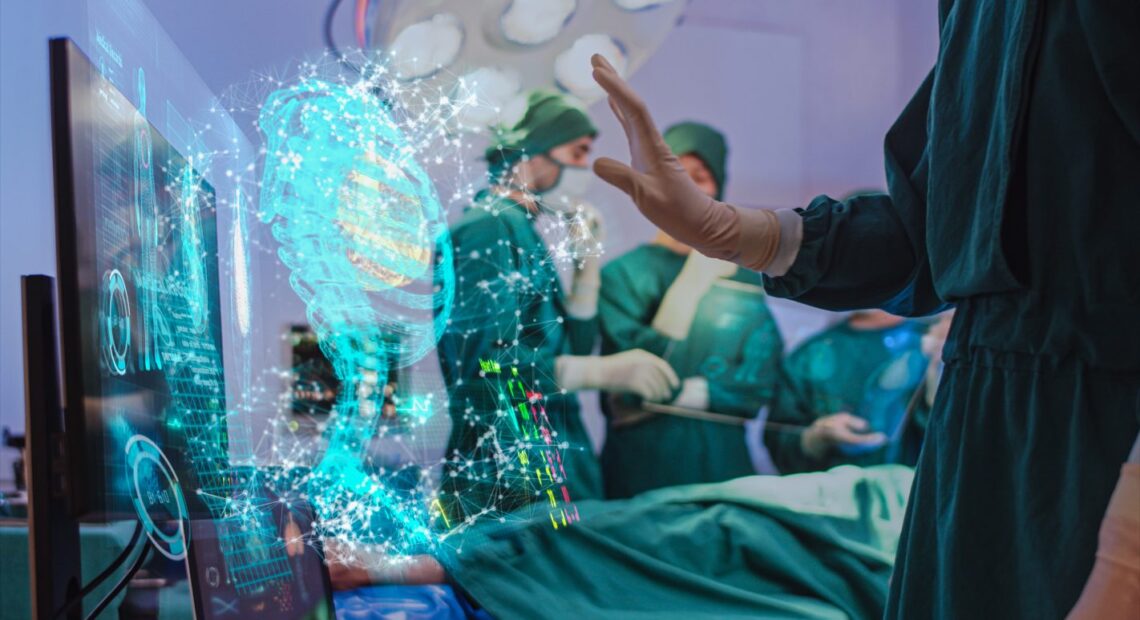Artificial intelligence helps doctors under increasing pressure

An overload of information and not enough time are two things doctors have to handle.
There’s also burnout and the possibility of a lawsuit.
The American Medical Association says nearly one third of U.S. physicians in 2022 reported they previously had been sued.
That number goes up to nearly half for physicians 55 and older.
But the solution to these problems could be a click away.
Steven Charlap, a doctor and entrepreneur, is motivated, in part, by tragedy.
“It all basically started when my older brother, a practicing cardiologist, was diagnosed with two primary cancers a week apart,” Charlap, who is the co-founder and CEO of SOAP Health, said. “Turned out, he had a genetic mutation that was responsible for his cancers. And he lost his life within the year.”
“It struck me hard – one, because I love my brother so much, but two, because I didn’t understand why his doctors didn’t catch his cancer early, given that we have a very extensive family history of early cancers and deaths,” Charlap added.
That loss pushed Charlap to study how things could be changed to avoid situations like what happened to his brother.
Years of research and interviews with doctors across the country led Charlap to the takeaway — that doctors have significant hurdles, which have only become increasingly worse in recent years.
“I realized that doctors are under so many pressures these days that they really curtail how much time they have to spend with patients,” he said. “And also, because medical knowledge is expanding exponentially, it’s almost impossible to stay up to date with the most rudimentary of information, forget about the whole body of information.”
In order to help fix what he calls a broken system, Charlap founded SOAP Health.
SOAP, which stands for Subjective, Objective, Assessment, Plan, is a commonly-used type of medical note to document a patient’s visit.
“What we’ve built, we call it the ideal medical assistant,” he explained. “It was built to help doctors be better versions of themselves, or the best version of themselves.”
This ideal medical assistant is made up of three components.
The first is called “the perfect medical interviewer” — a patented and clinically validated, conversational AI that interviews patients.
It’s available 24/7 and is presented as a person, trained with multiple body gestures and realistic capabilities.
“We have 45 body gestures, including folding and unfolding of the leg, standing up and stretching, pointing at you, pointing at herself. Even if you curse at her, she will say ‘No, no, no, that’s no way to speak to another person,’” Charlap said.
The second component is “riskvue,” described as the world’s most comprehensive risk and symptom assessment.
It collects a patient’s data, including things like family history, and analyzes it, then identifies a list of possible diagnoses based on the risks and symptoms collected.
And the third component is called the “smart SOAP note,” a specially-organized version of the traditional SOAP note integrated with all the patient’s information.
“What it does do is it allows a patient for the first time to very simply create a comprehensive personal record for themselves that they can use for any doctor,” Charlap said.
It’s technology aiming to elevate the medical practice to another level. And while the company was created in the shadow of loss, the love and memory of family pushes Charlap to try and make the product better every day.
“My brother was a great person,” he said. “He was a doctor, he really cared about his patients. He was a great husband, father, grandfather, and his memory deserves to be honored.”
Right now, SOAP has multiple grants in order to continue its work, including the National Cancer Institute, and the University Of Miami to use in cardiology.
It’s also in discussions with other health care systems to use the technology as well as piloting the software with some smaller medical practices across the U.S.

















